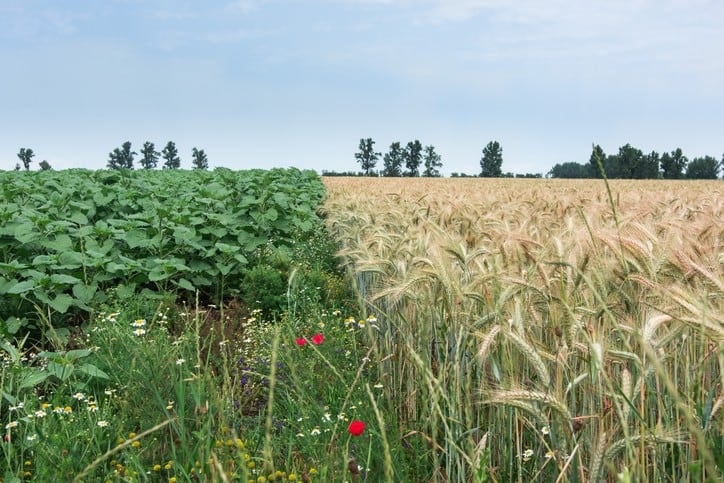The RSA Food and Farming Countryside Commission’s findings were the culmination of a two-year investigation. The Our Future in the Land report sets out the case for government to put rural issues at the centre of decisions about how to promote a green economy.
The modern food and farming system has contributed ‘significantly’ to climate breakdown, the depletion of natural resources and biodiversity loss, the report stressed. Extreme weather events are becoming more commonplace and the cost of flooding in the UK is approaching £2bn annually, with £200bn of assets at risk.
The current food system is also adding to the burden of NCDs such as obesity, which is projected to cost the National Health Service an estimated £9.7bn by 2050, with wider costs to society estimated to reach £49.9bn per year.
This is not some ‘dystopian future’, it is happening here and now, the report warned.
"The scale of the challenges in front of us are enormous and we know we need to do so much more. Our mandate has been to look afresh at the food and farming system, the countryside and rural economies, and to help shape a vision of a more sustainable future. We have heard how so many of the issues are interconnected and we have seen what people are doing already to respond. Transformation of the whole food system is now essential,” Sir Ian Cheshire Chair, RSA Food, Farming and Countryside Commission, said.
The case for ‘serious, urgent and systemic change’ has prompted a number of policy initiatives. The UK government has set net zero greenhouse gas emission targets for 2050. The Welsh, Scottish and then UK governments declared a climate emergency. The National Farmers’ Union (NFU) has committed its sector to a target of net zero GHG emissions by 2040.
“Now all our efforts must be directed towards the sustained, systematic actions needed to shift the current trajectory,” the RSA argued.
What can be done?
The report makes 15 recommendations in three areas:
Healthy food: Access for all
- Levelling the playing field for a fair food system: ‘good food must become good business’
- Commit to grow the UK supply of fruit, vegetables, nuts and pulses, and products from UK sustainable agriculture
- Implement ‘world-leading’ public procurement, which can be used as a tool to transform the market
- Establish collaborative community food plans to help inform and implement national food strategies and meet the different needs of communities around the UK
- Reconnect people and nature to boost health and wellbeing
Farming is a force for change: A fourth agricultural revolution
- Design a 10-year transition plan for sustainable, agroecological farming by 2030
- Back innovation by farmers to support a fourth agricultural revolution
- Boost farmer training, peer mentors and support networks
- Extend support for Producer Organisations to all sectors to increase cooperation and collaboration
- Establishing a National Agroecology Development Bank to accelerate a fair and sustainable transition
Rural communities as ‘powerhouse’ for ‘fair and green economy’
- Establish a national land use framework in England based on the public value of land
- Invest in the skills and rural infrastructure
- Create more ‘good work’ in the regenerative economy
- Develop sustainable solutions to rural housing need
- Establishing a National Nature Service that employs the energy of young people to kickstart the regenerative economy
Avoid ‘blunt tools’ for complex problems: NFU
Responding to the report, NFU vice president Stuart Roberts recognised the ‘need for change’ and the ‘important role’ UK food and farming plays in making nutritious food available for all.
“We are facing a hugely pivotal time for British food and farming, and the health of our nation,” he said.
However, Roberts stressed that UK farming is already working towards becoming carbon neutral and juxtaposed UK standards with that of food produced elsewhere in the world.
“While we need innovative thinking and ambition, it is important that policy makers recognise the difference between the way food is produced in Britain - with the animal welfare and environmental standards that goes with British farming - compared to food and environmental standards delivered elsewhere. That is why we advocate our grassland farmers producing climate-friendly beef and lamb and why we are leading the way with our plans for farming to be net zero by 2040.
“If we are serious about our nation’s health, we need to avoid blunt tools to solve complex problems and instead the government needs to invest in quality, affordable, domestic food production as a strategic priority.”




